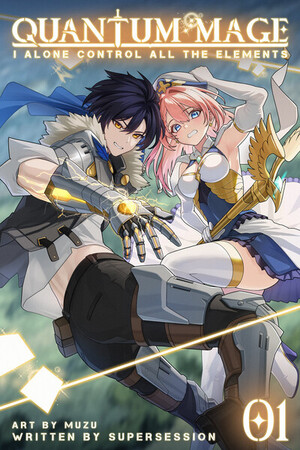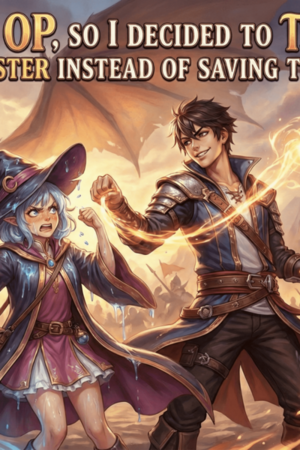Chapter 2:
Chapter Two: The Faceless Child
The Archivist of Lost Eras
The boy was there again.
No footsteps. No shadow. Just presence—unmistakable and instant. The same faceless child, cloaked and silent, standing amidst the broken altar’s dust like he’d always been part of the temple.
But something had shifted.
Beneath the smooth skin where a face should have been, Yusuf saw motion—ghostly patterns swirling like fog behind glass. Glyphs without language. Shapes without names.
And the boy was breathing.
Slow. Deliberate.
“Are you… real?” Yusuf asked.
The boy didn’t answer. Instead, he raised a hand and pointed to the stone slab behind them.
The symbol etched into the altar—Kalas—still glowed with rhythmic pulses.
“You want me to touch it?”
The boy gave no sign. But the meaning pulled at Yusuf’s ribs, like memory being stirred.
“I’m not a chosen one. I translate burial records,” Yusuf muttered. “I write captions for coins no one wants to display.”
But his hand moved anyway.
Crack.
Soundless but absolute—like the sky shattering behind his eyelids.
Yusuf blinked, and the temple vanished.
He stood in a city painted with sunlight.
Not Cairo. This place was older. Dreamlike. Pale clay buildings curved upward like dancers reaching for the twin suns overhead. Murals covered the walls—rituals, spirals, stars.
Everywhere, people moved in loops.
Children skipped in perfect circles.
Traders handed goods back and forth in a seamless cycle.
A woman stirred a clay pot. Paused. Stirred again.
“They’re looping,” Yusuf whispered.
“This is Ehlur,” came a voice—not out loud, but inside him. Gentle. Unshakable.
The boy was beside him again, his cloak trailing just above the ground.
“The Kingdom of Endless Day,” the voice said. “The first fracture. The first to forget.”
Yusuf followed the boy through twisting alleyways where murals shimmered and cracked. The air buzzed with something unspoken. The people didn’t see him—or if they did, they refused to break the rhythm.
“What happened here?”
“They erased names. Erased roles. To preserve unity. But in doing so, they erased identity.”
“Then what’s left?”
“Only movement. Ritual. Silence.”
The boy pulled from his robe a glowing thread, delicate and bright. Memory in its rawest form.
Then a scroll. Sealed in wax. The symbol of Kalas glinted on its edge.
“This is the Codex of Threads. It will show you where memory refuses to die. Where the anchors lie.”
They turned a corner and found a courtyard where the loop frayed.
Dancers twirled in halting rhythm. One stuttered. Another froze mid-spin. Beneath a crumbling mural, someone had scrawled in charcoal:
I REMEMBER.
“This is the anchor,” Yusuf said.
“Enter it,” said the boy.
He reached forward—
And the world snapped.
Yusuf stood on a small stage. A woman was speaking, her voice trembling.
Children clapped—then reset.
A man in the crowd cried out in protest—then reset.
The woman opened her mouth to say a name. Her jaw froze. Rewound.
“This is the moment it broke,” Yusuf whispered.
Then he heard it—
Footsteps.
Not looped. Not rhythmic.
Real.
He turned and saw them: cloaked figures with featureless white masks, eyes glowing faint red beneath their hoods.
Loop Wardens.
One raised a baton made of flickering light. Another extended a hand, distorting the air.
“Stop him,” one said, and time buckled.
The plaza collapsed into fractured loops. A door opened and closed five times in one second. A woman screamed on repeat. The sun flickered—on, off, on.
Yusuf ran.
The guards gave chase.
One blinked sideways, appearing five steps ahead of him. Yusuf dodged into an alley, barely avoiding a collapsed arch.
Loop distortion rippled through the environment. Buildings changed shape behind him. Pathways disappeared, reset, rewound. A fountain reversed its water flow and then shattered.
“This is impossible!” Yusuf shouted.
“You’re in a wound,” the boy’s voice replied, calm and distant. “And wounds resist healing.”
He sprinted through a corridor that led into a plaza—only to find it morphing mid-run. A wall curved where none had been. A stairwell dissolved. The path changed as he moved.
He ducked beneath a market stall looping infinitely between empty and full.
A guard lunged.
Yusuf swung the scroll instinctively. It flared, blinding light searing the warden’s mask. The figure staggered, glitching like a broken image, and vanished.
But two more appeared behind him.
He leapt a broken ledge, hitting the ground hard, rolling into a courtyard where murals bent upward into spirals. The light changed color—red, then blue, then gold.
Another warden snapped a loop mid-air, turning the mural into a weapon. A length of painting curled off the wall and lashed toward Yusuf like a whip.
He ducked, sprinted through, heart hammering.
He reached a crumbling amphitheater. In the center was a broken statue—half a dancer, half a scholar. A name had been etched into its base. Scratched out.
But part remained:
“…NIRA.”
He stumbled toward it.
The Codex pulsed in his hand. Hot. Heavy. Waiting.
“Aenira,” he whispered. “Your name was Aenira.”
The light changed.
The world howled.
Time snapped backward—and forward.
Dancers fell out of sync. Murals rewound, then advanced. The guards froze. One mask cracked, revealing smoke and sparks underneath.
The loop collapsed.
And Ehlur began to breathe again.
He was back in the temple.
On the floor. Gasping.
The scroll pulsed once, then dimmed. The Codex had accepted the repair.
Yusuf coughed. His hands shook. His knees ached.
But the warmth of twin suns still clung to his skin. The rhythm still echoed faintly in his ears.
He understood the fracture. The city’s decision. The price it paid to preserve peace through erasure.
He reached into his coat pocket and pulled out his museum ID.
“Yusuf El-Amin. Chief Archivist.”
But the photo...
It was him.
Sort of.
The expression was wrong. The eyes looked… older.
And the more he stared, the less sure he was that it had ever been his photo at all.
“Every reconstruction begins with a choice,” came the boy’s voice from behind him.
Yusuf looked up slowly.
“What do I lose?” he asked.
The boy didn’t answer.
Instead, he pointed toward the broken horizon.
There, suspended like stars across a torn sky, floated cities. Dozens of them. Each one fractured. Each one forgotten.
Each one waiting.
Yusuf stood.
The wax seal on the scroll cracked.
And the Codex opened again.




Please sign in to leave a comment.